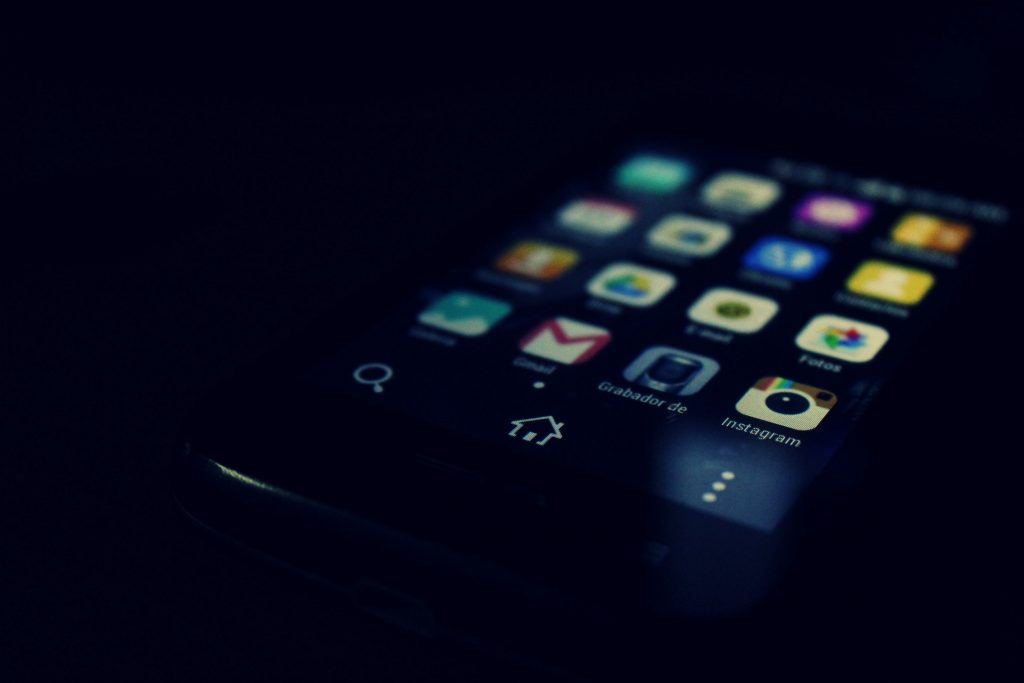 In the last decade, mobile apps have transformed the way in which we understand and experience digital interactions. Different scholars have addressed this transformation by arguing that we have witnessed a shift from a more ‘open and innovative’ internet experience to a social experience of digital interactions that is determined by corporate control and data exploitation (Zittrain, 2009; Goggin, 2011; Wagner and Fernandez-Ardevol, 2015; Daubs and Mazerolle, 2015). Today we seem to have an app for everything, and wherever we go we are constantly pushed to download a given app. This is particularly true if we explore the context of family life. Parents download pregnancy and baby apps, health-tracking apps, home hubs apps (e.g. Amazon echo, smart meters, surveillance cams and other home devices), social media apps, educational apps and of course game apps. The research on the relationship between family data and apps has so far followed these different lines of enquiry:
In the last decade, mobile apps have transformed the way in which we understand and experience digital interactions. Different scholars have addressed this transformation by arguing that we have witnessed a shift from a more ‘open and innovative’ internet experience to a social experience of digital interactions that is determined by corporate control and data exploitation (Zittrain, 2009; Goggin, 2011; Wagner and Fernandez-Ardevol, 2015; Daubs and Mazerolle, 2015). Today we seem to have an app for everything, and wherever we go we are constantly pushed to download a given app. This is particularly true if we explore the context of family life. Parents download pregnancy and baby apps, health-tracking apps, home hubs apps (e.g. Amazon echo, smart meters, surveillance cams and other home devices), social media apps, educational apps and of course game apps. The research on the relationship between family data and apps has so far followed these different lines of enquiry:
The Digital Tracking of the Unborn (PregnancyApps) – At the end of 2015, as I was awaiting ethical clearance to approach the field, I decided to start a desk-based analysis of one of the first technologies that mediate children’s data flows: pregnancy apps. In the analysis of the apps I decided to employ a digital ethnographic perspective, and to draw on those scholars who believe that digital technologies should be understood as complex socio-technical environments, defined by a plurality of cultural processes and tensions (Hine, 2000, 2015; Pink et al, 2016). During the research I focused on the following areas of investigation a) history and context (Who were the developers of the app? When was the app created? For what purpose? b) political economic environment (Was the app sold by the developers? Who owns it? Which are the main advertisers or institutions that relate to the app?) c) promotional culture (How do developers promote the app? What is the business model that informs its promotion?) d) data policies (How does the app gather and use personal data? How doe it approach the issue of users’ privacy?) e) reviewers’comments (How is the app rated? What do users say about it?). Methods included internet research and a critical discourse analysis of each app’s promotional culture, data policy and of the ‘most recent’ and ‘most useful’ reviewers’ comments as they appeared on Searchman.com. Overall I analysed 3,570 reviewers’ comments.
The research (Barassi, 2017) revealed that a) these apps gather large quantities of biometric data of babies b) the data policies of these apps are often very ambiguous, and create a situation whereby digital participation is coerced, as parents find it very difficult to ‘opt-out’ or control the data they share, c) there is a great variety in the cultural configuration of these apps and they need to be understood for their cultural specificity. During the interviews it emerged, not only that most parents used these apps during pregnancy but also that many have not deleted them from their phones.
Automated Homes and App Use – The research is revealing that some parents (especially in the U.S.) are consistently using apps to connect to the different ‘home hubs’, to feed into A.I systems (e.g Alexa) or to check and regulate their automated services. So far interviews have addressed and covered how much use parents make of these apps, whether they find it useful and whether they are worried that their data can be shared or hacked. A lot of focus so far has been placed on ‘home cams’ and the way in which they manage to soothe anxieties about security, control the children at a distance etc.
The Feeling of Apps: Some of the parents I interviewed were excited about their apps and the ways in which apps supported family life. Zehra[1] The mother of a 4-month old, who lives in London for instance defined herself as an ‘app enthusiast’. “I have apps for absolutely everything” she said: “1.Pregnancy 2. Babyfeed 3. Child development/sensory apps 4. Mush/Tinder for mums 5. shopping (supermarket apps; amazon app 6. bank apps 7. eating (deliveroo etc.) 8 transport (train apps, uber) 9 health/fitness apps 10 social media apps”. She said that the apps were making her life easy, and gave her a sense of feeling organised. Yet not all parents were so enthusiastic. When I was carrying out research in the U.S. for instance I interviewed Pia who lived in detached home surrounded by a large garden in the heart of a middle class neighbourhood in Los Angeles. The living room had all the signs of an intense family life, with two mothers, a 9-month old baby, two cats and two dogs. She recounted how her family life was entirely organised around digital technologies, especially the phone, and how she and her partner used both pregnancy and baby apps to monitor the growth of their baby. She then told me that, although at first these apps seemed to be a good idea because her and her partner would share important information about feeding, sleeping habits etc., at a certain point they just became ‘too much work’, and the data they inputted was messy and inaccurate. So they decided in her words “to start talking to each other”
[1] All names are fictional to protect participant’s anonymity.
Apps and Privacy – As I talk to parents I ask them whether they read the Terms and Conditions of the Apps they use, what they think about the relationship between privacy and mobile apps and whether they delete the apps once they use them. From the preliminary findings emerging from the research, I realised that only in very few occasions parents read Term and Conditions or change the privacy settings on their mobile. I also realised that parents have a lot of ‘dead data apps’, in other words apps that they don’t use and that are filled with ‘old’ data but that they nevertheless keep on their phones. Another element that is emerging through the research is that the attitude towards apps and privacy changes from context to context, from situation to situation. One father for instance, who doesn’t mind at all sharing photos of his 3 year old on social media, finds apps, and especially health apps very problematic.
